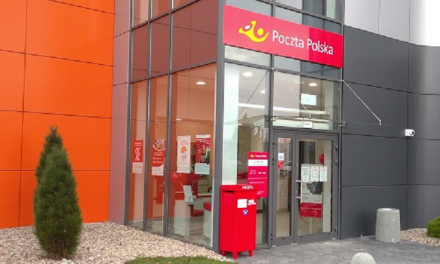
Royal Mail privatisation: Disaster or solution?
Dan Derry, managing director, OPS Logistics Consultancy, looks at the Royal Mail privatisation push for Post&Parcel. After a four-month evaluation, in September 2010, the UK government announced and committed to privatising Royal Mail (RM) in an attempt to breathe life into the organisation.
RM provides a service for every business, man, woman and child in the UK, so changes of this magnitude can potentially have a dramatic effect on the populace and the service they receive, so it is worth asking the title question and investigating the matter in order to try and uncover an answer.
Let’s first start by asking some basic questions:
Is RM fit to be privatised?
RM is, from a high level position, in the main four different bodies: 1) Royal Mail Retail – the company who moves your mail posted through the normal means, 2) Royal Mail Wholesale – the company that interfaces with the independent companies who provide for a down stream access service, whereby RMW do the final mile delivery, 3) Post Office Counters, who provide a number of services, e.g., stamps, various licences, etc, and 4) parcels, through Parcelforce and GLS. There are other elements to RM, but for the moment we will keep to a high-level view.
Although RM has made a profit in recent years, there is some doubt over its longer term financial viability. This is especially exasperated when you take into account a c. £8bn deficit in its pension scheme. There are also other issues in that the RM operating model is still too expensive, with too many touch points, although there has been both investment and reduction in staff, there is still some way to go, before RM can face any truly competitive environment. You then have the Quality of Service issues, whereby RM offers an on-time delivery target for 1st class of only 93%. Or put it another way, 7% of your customer mailings are not being targeted for on-time delivery. If a business produces 100m items of mail per year, then 7m items would fail. That’s 7m times a business has failed to meet their customers expectations or potential loss of revenue opportunities. The standard on-time delivery target for parcel deliveries within the commercial sector is >98.5%. RM also lacks the ability of a best-in- class customer relationship management system, as compared to their competition. This is partly down to regulation constraints and partly down to simple ability / skills.
With the government announcing that the Post Office will be mutualised and that the government will take on the Pension liabilities, this eases the ability to privatise RM, but there are still a number of risks, which would need to be weighed up.
What are the risks?
The Communications Workers Union (CWU) has vowed to fight any privatisation, including the use of industrial action. The CWU has a number of stated concerns, including jobs will be lost, service will degrade and prices will rise, all under the banner of a threat on the cessation of the universal service.
Yes, there are liable to be job losses and yes this probably needs to happen, but not before a more efficient and effective operational model is developed. This is a simple fact of a competitive environment; unfortunately, it is not in the interest of the CWU to have fewer members. Will the service degrade? Probably not (excluding industrial action), in fact it is more than likely to improve, as commercially focused companies know that securing revenue is about customer satisfaction. Prices could or could not rise. There are a number of variables, including decreasing cost of operation and competitive pricing. The universal offering could be affected, but if so, it would not be the end of civilisation, as we know it. Currently, if you send a parcel to outer lying locations, you will pay more, yet people still send to these locations.
A big risk is the likely inclusion of VAT being added to the price of postage. Currently RM, being a public sector company, do not charge VAT, a sore point with the competition, as they have to charge VAT. However, if RM is privatised then there is a strong likelihood that this status will change, meaning VAT will need to be levied to the price of a stamp. This will mean a higher cost to the public consumer and to some businesses, which cannot reclaim VAT, such as financial institutions. This might cause a rethink on the amount spent on postage and thus equate to even fewer volumes to RM. It will, on the other hand, mean an additional revenue stream for the Chancellor, a thought, which I am sure has not been overlooked, especially as they will be losing their golden share upon privatisation.
What are the benefits?
With an increase in private capital and investment, you would expect to see a more modern mail service emerge, thus providing an improved and cost effective service.
The taxpayer would no longer be funding an organisation, which is currently facing financial questionability, although they would still carry responsibility of the pension scheme.
The Post Office would still provide a social service to the community.
What would happen to the Royal Mail name?
A largely unanswered question. It would need to be assumed that a privatised company could not carry the ‘Royal’ name and would therefore need to change it. This is not new, as some of you will no doubt remember the last attempt at changing the name of Royal Mail, in the great Consignia adventure.
A further idea for thought would be that if the company was no longer carrying the name Royal, does that mean the Monarch’s portrait would no longer be on the stamp? The government are currently pushing the idea that this would be commercial suicide to remove it, but it is difficult to see how it could remain, as the company would no longer be a national asset, especially if RM were to be foreign owned.
Who is best to own / run Royal Mail?
There are a number of potential solutions, although few are ideal:
a) Leave RM as a Public Sector company, with an injection of investment funds, although governed by reorganisation requirements, with set targets on operational cost and service. The problem with this is any government has little to no ability to manage a company and they often find themselves making decisions based on political short term gains, instead of on long term viability.
b) RM purchased and run by an existing down stream access provider. This would provide both the right skill base and investment. However, it does have a distinct danger of putting the other down stream access providers (competition) either out of business or present an unfair competitive advantage to them, as this new entity would still have the requirement for final mile delivery and would have to pay for this activity.
c) RM purchased by a Private Equity (PE) firm but run by the existing management structure. Whilst there would be an injection of investment capital, there would no doubt be a defined repayment structure as most PE firms operate on a short-term basis, with quick returns and high margins. If the management fails to deliver, they will be quickly replaced, which would cause further stability issues.
d) A Management Buy-Out (MBO) to include employee ownership, similar to a John Lewis style of structure. This would still require a degree of Venture Capital funding, but would have greater ownership from management and employees who would have a vested interest in providing for a modern postal service.
The above is not all-inclusive, as there are also other solutions and potential pitfalls, including a new regulator, but this is not a dissertation.
So would privatising RM be a disaster or solution? It is hard to say given the number of potential variables involved. We know that the operational model of RM is too costly and that the CWU is reluctant in supporting change, which will mean drastic restructuring. We also know that governments are not capable of running companies as they cloud service, cost and political gains. Whatever the decision, one thing must remain constant. Any change must see the consumer benefit with improved service and greater value for money.
To contact Dan Derry or to hear more about OPS Logistics Consultancy, click here.












